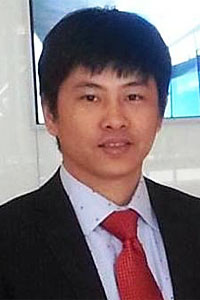With his shocking victory in the US presidential election, Donald Trump has made history -- and made a lot of people very afraid. His rise threatens to incite a revolution that shakes the foundations not only of American politics, but also of global peace and prosperity. One region likely to start feeling tremors soon is Southeast Asia.
Throughout his campaign, Mr Trump espoused an "America first" worldview, emphasising that he would follow through on US international commitments only when it suits him. This would represent a notable reversal from the last eight years, during which President Barack Obama made a serious effort to deepen America's ties with Southeast Asia. Under his stewardship, Washington acceded to the Treaty of Amity and Cooperation in Southeast Asia, and joined the East Asia Summit.
Moreover, in 2013, the US became the first Asean dialogue partner to establish a permanent mission to the organisation. Earlier this year, Mr Obama hosted the first US-Asean summit on American soil. He also brought four Asean members into the Trans-Pacific Partnership (TPP).
To be sure, America's ties with Thailand and the Philippines have deteriorated during Mr Obama's second term, owing to his criticism of violations of democratic norms and human rights. But that has been more than offset by progress in America's relationships with Indonesia, Laos, Myanmar, Singapore, and especially Vietnam.
Mr Obama's efforts in Southeast Asia were all part of his broader strategic "pivot" to Asia. Aimed at helping the US to maintain its strategic primacy, the policy has been quietly welcomed by most regional actors, as it dovetails with their desire to check China's hegemonic ambitions.
All of this may be about to change. Mr Trump is likely to focus overwhelmingly on domestic issues, at the expense of America's strategic interests abroad. Indeed, he may well back away from strategic engagement with Asean and its members, causing their relationships with the US to deteriorate. If he fails to show up at important regional meetings such as the East Asian Summits, that deterioration will become even more pronounced.
Mr Trump's indifferent attitude will also hurt bilateral relations. To be sure, Malaysia, Thailand and the Philippines may prefer a US president who does not trouble himself to criticise their governments' human-rights abuses, corruption or constitutional shenanigans. But US relations with other countries in the region may stall, if not deteriorate, as confidence in Mr Trump's willingness to follow through on US commitments collapses.
Economic ties are also likely to suffer. Under Mr Trump, the TPP will stay moribund, at best. The US-Asean Connect initiative, which Mr Obama proposed this year to expand America's economic engagement, may also go nowhere.
Australia, India and Japan may also find it difficult to connect with Mr Trump, further undermining faith in the US-led regional security architecture. The strategic rebalancing toward Asia that Mr Obama worked so hard to advance may be thrown into reverse, dealing a heavy blow to Asia and the US alike.
One Asian country that may welcome the election's outcome is China. Though Mr Trump has criticised China extensively for supposedly stealing American jobs -- and even blamed it for creating the "hoax" of climate change -- he may take a softer stance on Chinese strategic expansionism, especially in the South China Sea.
In a far-fetched but not implausible scenario, Mr Trump may even strike a deal with China over its territorial claims, disregarding the interests of US allies. Such a move would be particularly devastating to perceptions of America in Southeast Asia.
The good news is that this outcome is not guaranteed. Campaign rhetoric is one thing; governing is quite another. Once in the White House, a heavily advised Mr Trump may realise that maintaining some continuity in America's foreign policy, particularly in Asia, is more in line with US interests than the alternative. If nothing else, he may resist the idea of China gaining strategic primacy.
For Mr Trump, who made his career in real estate, perhaps the best way to look at it is in business terms. The US would be remiss to squander all the significant investment that his predecessor has made in Southeast Asia.
Le Hong Hiep is a fellow at the ISEAS-Yusof Ishak Institute in Singapore, and author of the forthcoming book 'Living Next to the Giant: The Political Economy of Vietnam's Relations with China under Doi Moi'. ©2016 Project Syndicate, www.project-syndicate.org
